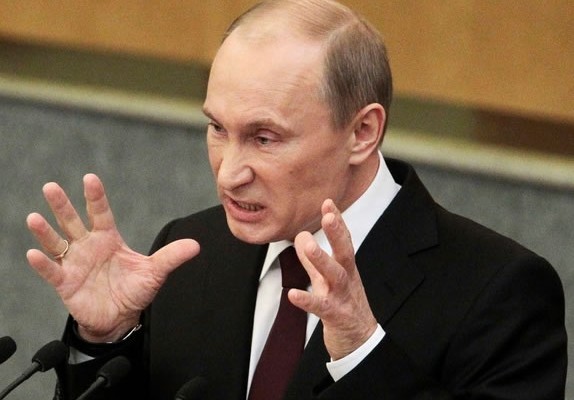 By William B. Taylor
By William B. Taylor
While Russia is a declining power, for the next several years it will represent the greatest threat to global security.
In the near term, President Vladimir Putin’s willingness to throw aside treaties, conventions, international law and standards of international behavior makes it imperative to contain and deter an aggressive Russian state — even as we remain open to engaging with ordinary Russians and alert to signs of a more peaceful Russian government.
Putting Russia at the top of the list of the new administration’s foreign policy challenges is justified not just because Russia has militarily invaded and continues to illegally occupy two of its neighbors. When Ukraine gave up its nuclear weapons in 1994, Russia and other permanent members of the UN Security Council pledged to respect Ukraine’s sovereignty. Russia violates Ukraine’s (and Georgia’s) sovereignty to this day.
It is not just because Russia leads, finances, arms and supports outlaws in southeastern Ukraine who, among other crimes, shot down a civilian airliner, killing 298 people. Just last week a Dutch-led international investigation clearly identified the criminals.
It is not just because Russia’s military intervention in Syria is prolonging the barbaric massacre of civilians. Bombing aid convoys and civilians in the Syrian city of Aleppo is a war crime. This week, the United States suspended diplomatic contacts with Russia over the attacks.
It is not just because Russia’s security apparatus assassinates the country’s opposition leaders, makes free and fair elections impossible, or sponsors hacks into U.S. political party emails in an apparent attempt to influence our presidential election. This is an outlaw state.
This Russian regime is the greatest near-term threat to U.S. security because Putin has demonstrated his indifference to international law and his determination to destroy the trans-Atlantic consensus that has kept Europe largely peaceful and enhanced prosperity for six decades. A Europe whole, free and at peace has been the goal of U.S. and European leaders since the end of the Cold War. That objective would have been achieved were it not for Putin. With his impetuous and dangerous behavior, he is the threat.
There are other threats, but China’s leaders do not appear to have the intent and the militants of the Islamic State group do not have the capability to seriously threaten U.S. and allied interests. Russia, even as it declines over the next several years, has both.
To keep the peace, we need to contain and deter Russia for the next several years as its budget reserves dwindle; as its international standing declines; and as its economy shrinks under the weight of corruption, Western sanctions and falling oil prices. We should support Ukraine and Georgia politically, financially and militarily; reassure our NATO allies; and enhance our forward presence in Europe by stationing additional alliance forces eastern and central Europe. We should make it clear to Putin and his supporters that further aggression will prompt much harsher sanctions, freezing them out of international financial credit markets. We should work with our European and other allies to maintain the sanctions until the Russians withdraw from Crimea and Ukraine. Multilateral sanctions work best, but unilateral U.S. measures can block financial flows to Russia.
Even if we pursue this policy, we should try to re-establish exchanges between Russian and American students. Nothing opens young minds like living abroad. We also should encourage any signs of changing policy or cooperation by the Russian government. While the recent elections in Russia included no opposition parties, this cannot last. Oppressive, bankrupt regimes are fragile.
The new administration will confront a range of international challenges. For now, Russia is the most threatening.
NEWSDAY

Leave a Reply
You must be logged in to post a comment.